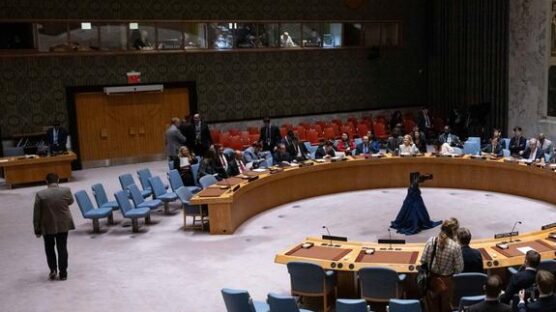Germany’s energy saving rules come into force
By DW
03 September 2022 |
1:58 pm
In response to rising energy prices and dwindling oil and natural gas imports from Russia, Germany is launching a set of binding measures to reduce energy consumption nationwide. Here's what this entails.
In this article
Related
1 day ago
Related
3 days ago
Berlin's first drug-checking service launched last year and demand is high. Now the data is being shared with the KnowDrugs app, which informs users about the latest drug-checking results in Germany and beyond.
1 day ago
Here's what's been making the business headlines in sub-Saharan Africa this week.
3 days ago
Nigeria’s Minister of Finance, Wale Edun says 4.83 trillion naira from T-Bills and Bonds issued in the first quarter of this year was used to pay part of the Ways and Means advances from the Central Bank of Nigeria. Sam Chidoka, CEO of Kairos Capital joins CNBC Africa for more on this discussion and Nigeria's debt management strategy.
1 hour ago
A year after Lula came to power, his gamble has paid off: deforestation has been halved in the Amazon. But this success comes at the cost of sacrificing another ecosystem that's just as vital to Brazil: the Cerrado.
1 day ago
While visiting Shanghai, German Chancellor Olaf Scholz has argued that the European market must be open to Chinese cars. However, he said that competition must be fair.
7 hours ago
Some top Nigerian banks are eyeing the international and local capital markets to raise fresh capital in a bid to meet the recapitalisation exercise by the Central Bank of Nigeria. Egie Akpata, Chairman of Skymark Partners joins CNBC Africa to examine options available to banks.
Latest
24 mins ago
It is time we separated the boys from the men in the UEFA Champions League games coming up in the week. The return leg of the quarterfinals takes centre stage this midweek and this is a preview of the games on GuardianTV with Ayomide Sotunbo and Hogan Niyi.
1 hour ago
A former US diplomat has been sentenced to 15 years in prison for spying for Cuba for decades. The incident has been called "one of the highest-reaching and longest-lasting infiltrations of the US government."
3 hours ago
A transitional council has been created to choose Haiti's next prime minister and Cabinet. The move is seen as the first step in bringing security to the troubled country.
3 hours ago
Exactly five years after the fire that destroyed the roof and badly damaged the rest of Paris's Notre-Dame Cathedral, one of those who worked on the project has spoken of the camaraderie of the team reconstructing the edifice and the skill of their achievement. Valentin Pontarollo is a carpenter who finished working on the roof just a few weeks ago. The carpentry of the structure is now complete. In Perspective, he told us of his joy at what the team has achieved, five years after tons of 13th-century oak either caught fire or was sent crashing down into the nave below.
7 hours ago
After a year of war, Sudan is dealing with one of the world's worst humanitarian crises. As more local and international actors get involved, the outlook remains grim.
7 hours ago
In the Rwandan village of Mbyo, Tutsi who survived the genocide now live together with rehabilitated Hutu perpetrators. But they tell DW it has been a difficult journey.
×

Get the latest news delivered straight to your inbox every day of the week. Stay informed with the Guardian’s leading coverage of Nigerian and world news, business, technology and sports.


















0 Comments
We will review and take appropriate action.